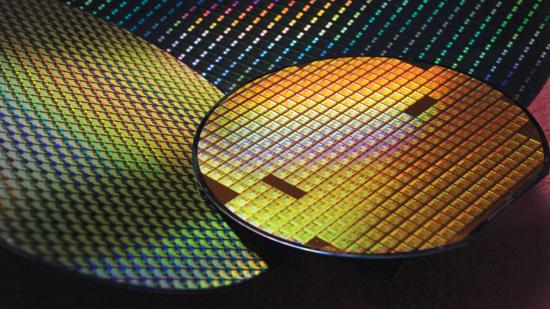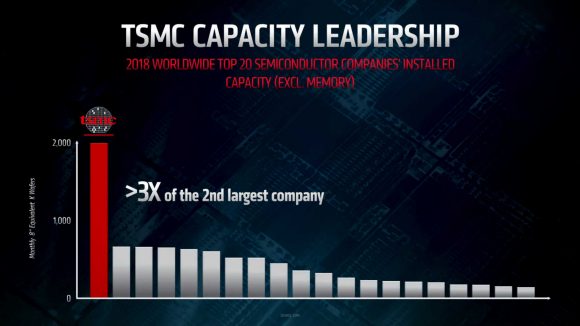AMD CTO Mark Papermaster has said that any high-end Ryzen desktop CPU shortages experienced back in July, when these processors first launched, were in no way due to TSMC manufacturing shortfall. Rather, it was an underestimation on the red team’s part as to the popularity of their high-end Zen 2 desktop chips that had them selling out quicker than AMD could make them, Papermaster claims.
In an interview with Anandtech, Papermaster explains away the rumours surrounding TSMC manufacturing capacity causing sparse supply. “We’re getting a great partnership with TSMC,” Papermaster says, “as well as great supply. We did have some shortfalls on chips when we first launched our highest performing Ryzens, and that was simply demand outstripping what we had expected and what we had planned for. That wasn’t a TSMC issue at all.”
AMD is now opting for TSMC’s advanced 7nm process node across its entire GPU and CPU stack. Within both EPYC and Ryzen processors there’s at least a single chiplet, if not many more, manufactured by the pure-play foundry giant. These chips are then fitted alongside a 12nm I/O die manufactured by ex-fab squeeze, GlobalFoundries.
On the GPU side, the 7nm process makes up the backbone of all RDNA graphics cards, including the RX 5700 series, RX 5500 series, and, unofficially, the RX 5600 series.
TSMC has been rumoured to be extending lead times for its 7nm node, N7, which has swiftly become one of its most profitable and widely-adopted.
“Just so you know, that’s always going to be the way: lead times for not only popular nodes but also the leading edge nodes go up every generation. As a result, everyone, not only at AMD, has to get better and better at this,” Papermaster explains.
There’s one potential boon to AMD’s available capacity in the near-future, following reports that Apple, one of TSMC’s biggest 7nm customers, will be shifting towards 5nm capacity during the second half of 2020. From there on out, AMD will be weapons-free to easily double its 7nm orders.
A report by AppleDaily (via WCCFTech) claims TSMC will be able to shift production more freely once Apple gobbles up two thirds of its advance 5nm node for the latest iPhone. Apple’s intention to shift towards 5nm was also reported over at DigiTimes earlier today. The fab has already moved its 5nm manufacturing node into risk production.
AMD is eyeing up TSMC’s enhanced 7nm+ process node, N7+, in 2020, and in the meantime it would appear any threat of TSMC manufacturing deficits have subsided. Most of all this spare capacity as needed will be crucial for the company’s push into the data centre market with its EPYC server chips.
Header image courtesy of Taiwan Semiconductor Manufacturing Co., Ltd.

